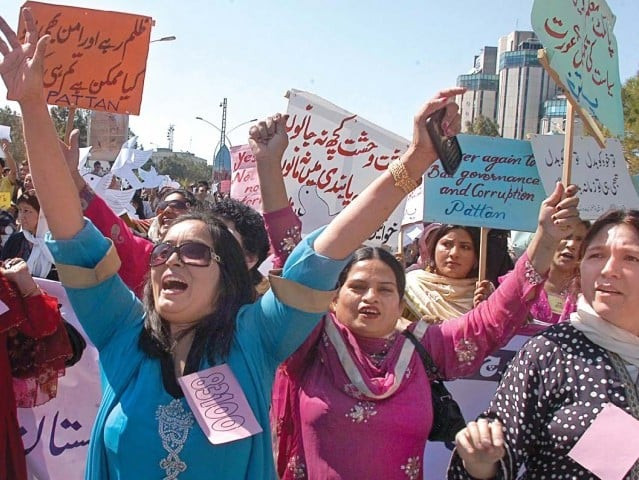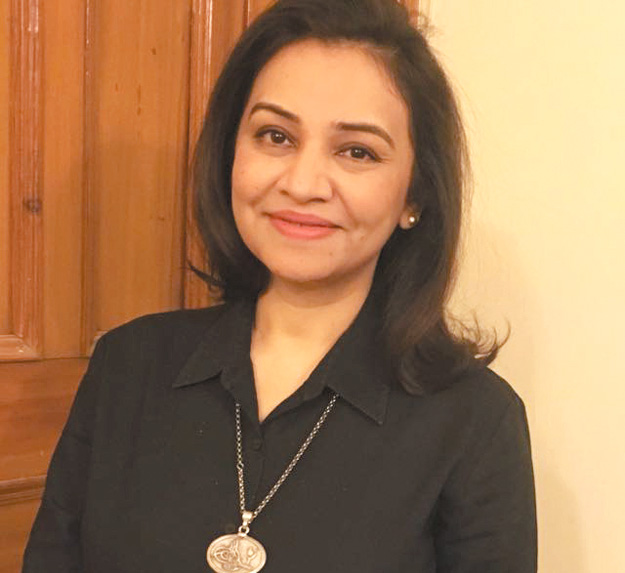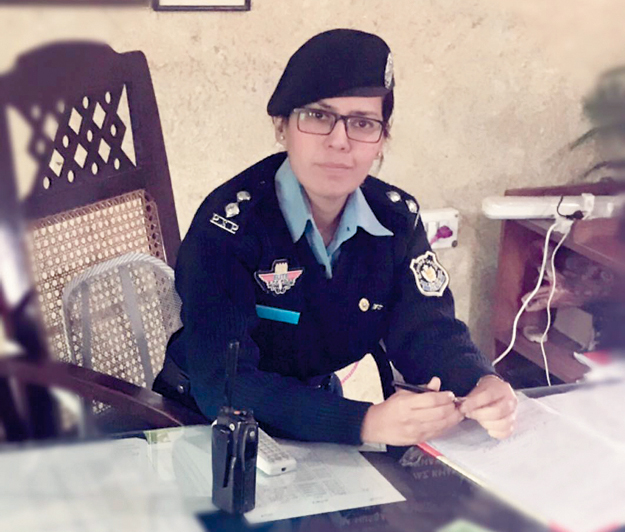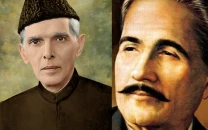International Women’s Day: Women still face an uphill battle towards empowerment
Women narrate their woes and successes in a male-dominated environment

Women narrate their woes and successes in a male-dominated environment. PHOTO: EXPRESS/FILE
The daily wages teacher — Faiza
A single mother of an eight-year-old boy, Faiza teaches at the primary section of Islamabad Model College in Sector G-6.
Despite teaching for over seven years, she is still working on daily wages.
“All my colleagues, who had started teaching at the same time I did, have been regularised but I’m still working on daily wages,” she bemoans noting that while she started at the college in 2006, she had to leave for a year when she got married.
“The salary is too meagre and is released months later after deductions.”
Teaching, though, is not Faiza’s only talent. She recites Naats and is invited by various institutions and families at religious gatherings such as milaads, majlis.
Faiza notes that she never used to demand any payment for that, and it became a bone of contention with her husband and eventually led to their separation. But with her condition dire, Faiza says she accepts gifts and honorariums.
“This teaching profession has given me nothing but I get something to make both ends meet by reciting Naats”.
Even though she lives in a woman’s shelter in Rawalpindi, she tells people that she lives in a women’s hostel. But the shelter too has asked her to leave, since it’s not a permanent residence.
“The shelter is too far from my school but I have no money to pay the bus fare since we have not been paid for four months. Hence I only go to schools when I have the fare,” she sighs.
The rights activist — Rakhshinda Parveen

Rakhshinda Parveen is a gender expert, a public health specialist and an activist. However, her claim to fame is that she was the first woman to be current affairs anchorperson in the country.
But her path was fraught with numerous obstacles, least of which was her dictions to end her abusive arranged marriage and raise her daughter on her own. That decision, Parveen said, changed the course of her life.
Parveen says the stigma attached to her marital status severely impacted her work.
“Not all women are ready to talk about their divorce, rejection by men, harassment at workplace and other painful experiences,” she told The Express Tribune.
“However, I coped with all challenges [of working while being a single mother] since I had no other option,” she said explaining that despite being a conservative and introvert girl she had a divorce, lived alone and worked jobs.
She added that after securing the divorce, which came against the wishes of her family, she applied to hosting a morning show on the state-owned television.
She managed to beat off competition from 400 other candidates and get the job.
Praveen said that working while being filmed by a camera helped restore her self-esteem. She ended up earning a number of fellowships and worked for a number of national and international organisations. She even wrote three books and dozens of research papers on gender issues.
The one-time television anchor currently operates a business incubation centre for struggling single and special women. Besides, she runs a campaign for anti-dowry legislation.
“If you have a strong surname, things automatically become easy,” she says pointedly, before adding, “When people see that this woman has no strong backing or support they don’t miss a chance to tease you. One has to pay a heavy price for being empowered and I have suffered so many losses only to gain from it on my own terms”.
Despite all the odds she says, “I might not be the winner but at least I have not quit”.
The journalist - Razia Khan
Just a week before Razia Khan was about to take her final FSc exams, her mother died because of breast cancer. Being the eldest of five siblings, she had no option but to step up to take care of them.
Abandoning her studies midway, along with her mother’s dream of watching her become a doctor, Razia took up a job in a school to support her family.
“She [her mother] never asked me to help her in household chores so I knew nothing about managing a home. But after her sudden death, I had to manage everything,” Razia said, adding that she even hurt herself numerous times while working in the kitchen.
Teaching in schools to support her family, Razia worked towards her Bachelors and Masters privately. She made her foray into the media by working for an Urdu language newspaper and later joined a local television channel as a reporter.
A mother of two and having worked in the media for over 15 years now, Razia says her life has been a constant struggle. “It’s a challenging and unconventional job [working in media]. I come to work at 9am sometimes leave at 11 or 12 in the night,” she says.
She decried that media organisations do not have special facilities for mothers like her, unlike in some government and non-governmental organisations.
“In this field, we are told that a reporter has no gender. A reporter is neither a male nor female. But the reality of the daily routine does not change for women,” she says.
“They have to work as equals at the office and are supposed to look after children at home after work, no matter how tired they are”. Razia further bemoans that while no quarter is afforded in the assigned work, the gender wall comes in the way of opportunities.
“Male reporters get promotions, become bureau chiefs, but female reporters always remain reporters.”
The police officer — ASP Arsla Salim

It is uncommon that people change their careers after pursuing higher education in a specialised field. Hence the sight of ASP Arsala Salim, who holds an M.Phil in Biochemistry from Quaid-i-Azam University (QAU), is a breath of fresh air.
ASP Salim joined Islamabad police after she completed her Civil Superior Services (CSS) exams three years ago.
She currently heads Golra and Tarnol police stations after becoming the first woman to lead the over 100-year old Golra police station, commanding as many as 300 police officers - all men.
The decision to join the police force was a strange one since no one from her working-class family had ever served in the force.
“Initially my family was reluctant because of the insecurities attached to the job. But with the passage of time, they started to understand the nature of this job and are now supportive,” ASP Salim said.
But the job was challenging. The ASP admits that in the beginning, she did not know which road led where but now she can deal with all kind of issues and crimes, including police raids, appearing in courts, commanding search operations to against terrorists, investigate robbery, murder, and domestic violence cases.
“The area is a gateway to Islamabad, so we have to be extra vigilant,” she says.
“Being a woman I have insecurities and emotions but one has to control them and stay strong to lead a force,” she says, adding “I don’t let people take me as a woman. I know my work, and when you know your work, people give you respect and never take you for granted.”
She added that sometimes they get no rest for weeks and go out in the field at odd hours.
“Due to terrorism, the situation is always uncertain. We have to deal with terror, give security to the people and deal with routine crime too, but the police force is scarce and that is a big challenge for us,” she said.
“Our own lives are at risk. But I like challenges, and always try to fight.”
Published in The Express Tribune, March 8th, 2017.



















COMMENTS
Comments are moderated and generally will be posted if they are on-topic and not abusive.
For more information, please see our Comments FAQ